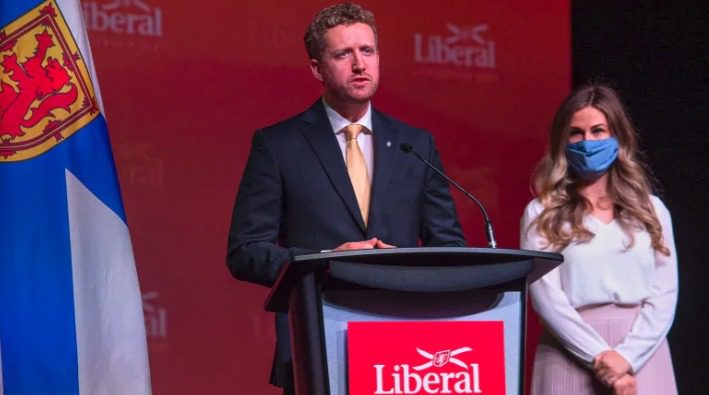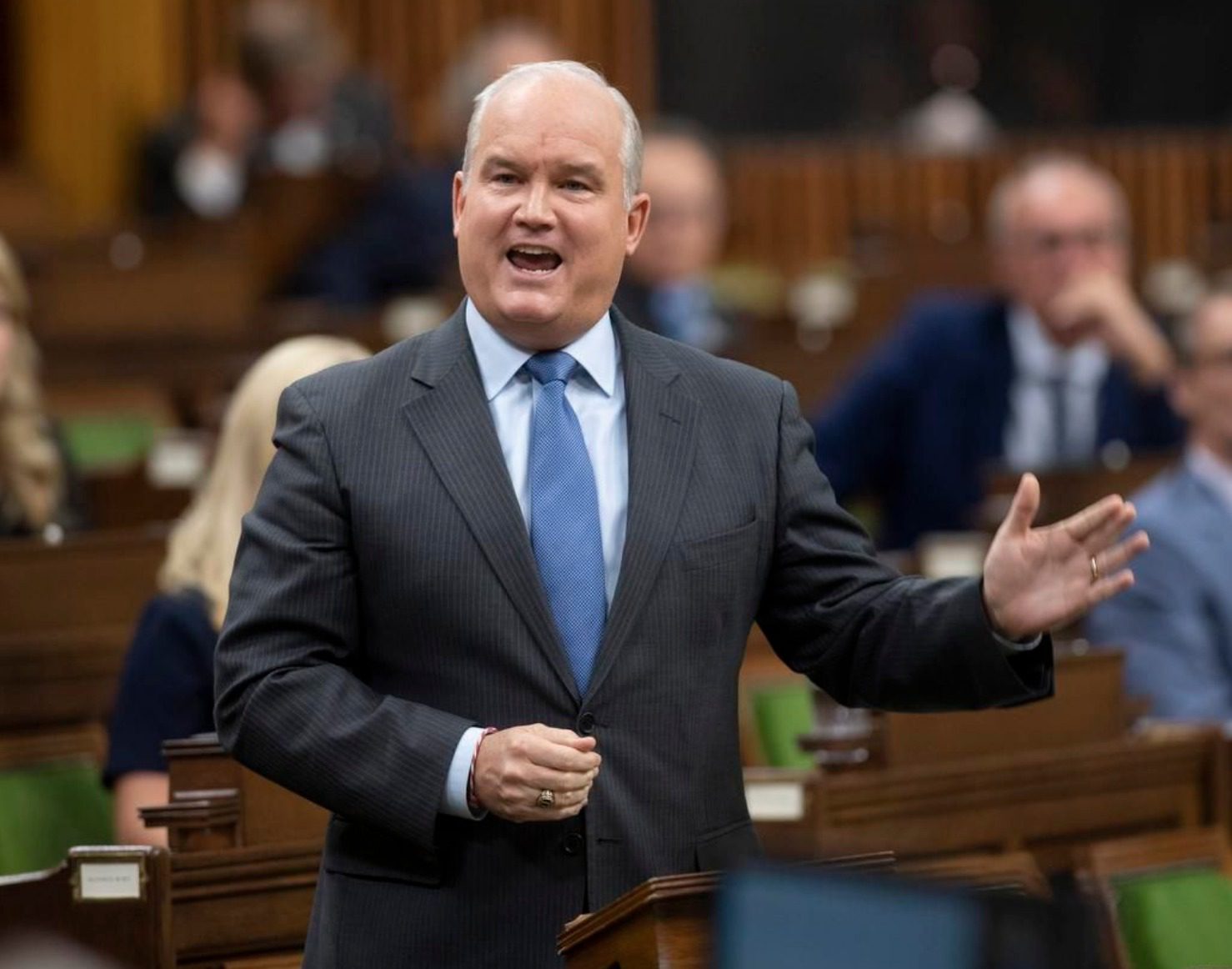This content is restricted to subscribers

The views, opinions and positions expressed by columnists and contributors are the author’s alone. They do not inherently or expressly reflect the views, opinions and/or positions of our publication.

This content is restricted to subscribers
The views, opinions and positions expressed by columnists and contributors are the author’s alone. They do not inherently or expressly reflect the views, opinions and/or positions of our publication.

Nova Scotia is about to have a new premier, after Iain Rankin won the provincial Liberals' leadership contest on the second ballot. He will take over for Stephen McNeil at a time of pandemic and where McNeil's government has largely avoided the province's legislative assembly for nearly a year. All of this is well and good Rankin has a seat already and the province won't have to go through what happened most recently in Newfoundland and Labrador with their new premier but he hasn't even been sworn in yet and already the hosts of the country's main political shows are asking him when he wants to call an election so that he can "run on his own mandate."
No.
We don't have "mandates" in Canada. They are antithetical to our system of government, and yet, because so many of our political discussions in this country are framed by American concepts, that's the kind of thing that is being discussed. False equivalencies of their system infect our political discourse, and not enough people are willing to push back against them because they have become pervasive, and it really, really doesn't help when the hosts of political shows play into them as well.
For starters, Rankin has no reason to call an election for almost another year-and-a-half. Nova Scotia is not bound by a fixed election date (thankfully that's another Americanism that we need desperately to purge from our statute books, preferably with fire), but it is subject to the constitutional limit of five years between legislative assemblies, which would be May 30th, 2022 at the latest. While several provinces have had elections during the pandemic, in some cases it was because it was statutory (Saskatchewan), but in others, they were in a hung parliament situation and they wanted a majority legislature, but Rankin wouldn't have that excuse as he is inheriting one. Granted, Nova Scotia is one of the provinces in the best shape during the pandemic, so they theoretically could have one with less trouble than some other provinces, however just because they could, it does not follow that they should, even with a new premier.
The demand that a new premier (or prime minister) who has assumed leadership of the party between general elections quickly call another one in order to have their own "mandate" goes against some of the fundamentals of Responsible Government in that it presumes that the system is based on the leaders. It's not supposed to be despite the best efforts of parties and the media to make it appear so. Remember that we elect individual MPs, not parties, and not the first minister directly. The fact that the incumbent remains in power after an election until they resign or are dismissed by the appropriate vice-regal is another indication that governments, while drawn from their respective assemblies, remain separate from them. Governments can stretch across parliaments, or change within a single parliament, depending on the situation of confidence. They are not tied to particular elections.
The talk of mandates, however, presupposes that governments are elected when they are in fact appointed by the vice-regal based on which party can command the confidence of the legislature. Confidence is not bound to a "mandate," which is particularly made evident in a hung parliament, where no party hold a majority of the seats. It's hard to describe a "mandate" if there isn't a majority to tie that mandate to and no, this is not an invitation for electoral reform in order to rig the system to more closely associate the two concepts. It just means that we need to think about our system as it was designed and not try to wedge American concepts into it.
That, unfortunately, gets harder when we keep trying to import Americanisms, such as the ways in which we now choose party leaders as though they were quasi-presidential primaries. This has fuelled the narrative of having a "mandate" because it has elevated the leader above how our system was designed to regard them. Trying to tie a leader to an electoral mandate helps to propel the move that has seen our political parties turn themselves into minor cults of personality around each new leader, and then reform that personality cult when that leader is gone and a new one replaces them. The system properly evolved in such a way that leaders could be interchangeable within the party that the caucus could decide when one had outlived their usefulness or become a liability, and they would choose a new one from within their own ranks. But the presidentialization of our party leaders means that these mechanisms and their utility are being forgotten.
Rankin has said in the interviews with said political shows that his first priority is to swear in a new Cabinet and have a new legislative session, which is how it should be. In fact, it's what needs to happen because the Nova Scotia House of Assembly has not met in nearly a year having adjourned for the pandemic, followed by a prorogation. Rankin will need to quickly pursue a budget, and hopefully it won't be a thinly veiled exercise in crafting an election platform that he can then call an election on something that would almost be irresponsible at this particular point in time, no matter whether the province has some of the lowest COVID numbers in the country. Rather, he should take the opportunity to govern and show what kind of a leader he is, so that when he does eventually go to an election, the people have something that they can actually hold him to account for, rather than the sins of his predecessor.
Nevertheless, talk of his own "mandate" will dog him if he does, particularly from the pundit class who will demand that if he wants to do something, he should call an election and run on it first. Our system doesn't work like that, and it would be great if we could stop pretending that we're Americans and actually use our Westminster parliamentary democracy the way it was intended.
Photo Credit: CBC News
The views, opinions and positions expressed by columnists and contributors are the author’s alone. They do not inherently or expressly reflect the views, opinions and/or positions of our publication.

So Conservative strategists believe Canadians do not know who Erin O'Toole is yet. That is the conclusion one must make after seeing the newest ads, in both official languages, released by the Conservative Party of Canada. The english ad, certainly, is a classic introductory ad, aiming to frame the Conservative leader to potential new voters.
The ad painstakingly tries to make sure we understand we don't know this guy. "Who is Erin O'Toole?", types someone in a generic search engine in the opening. The operator skips over the suggestion to look for Erin Brockovich instead and clicks on a video of O'Toole. "I'm Erin O'Toole. If you don't know me, I'm the leader of Canada's Conservatives." Then there is a very general framing about the economy and an invitation to find out more on the internet. "But for now, it's great to meet you." Six months into his gig, O'Toole is viewed less favourably by Canadians than predecessor Andrew Scheer at the same point in his respective leadership. The numbers are trending in the wrong direction for him.
Presumably, the target audience has missed the last 6 months in Canadian politics. It has also missed the two last Conservative leadership races. And the fact that O'Toole was Veterans Affairs Minister under Stephen Harper, albeit only for the last 11 months of the last Conservative government.
Why is this happening now? Because the Conservatives are losing the framing war. Liberals, New Democrats and 3rd party groups are eagerly pumping out unpleasant narratives about O'Toole. So far in 2021, Erin O'Toole had to defend himself as not Canada's version of Donald Trump. He has had to demonstrate that his party is not a haven for right-wing extremists by kicking MP Derek Sloan out of the Conservative Party for accepting a donation, via the Conservative Fund, from a white supremacist. All this is underlined by data comparison with his predecessor Andrew Scheer, showing O'Toole is less popular at the same point in their tenure at the head of their party.
Two recent polls, Léger and Abacus, are showing that the Liberals are starting to pay a price for their mishandling of the COVID-19 vaccination rollout. But the Conservatives are not benefitting. It is the NDP that seems to be on the rise, in the low 20s, closer to the Blue team than the Blue team is from the Red team. In Quebec, where the Conservatives need to build on their beachhead if they want to replace the Liberal government, the Tories are fighting for a distant 3rd place with the New Democrats.
Which brings us to the ad in the other official language, which targets mainly Quebec and not other french-speaking Canadians. The french ad has much more substance to it than its english counterpart.
O'Toole starts by pointing out that many Canadians are going through hard times. "But it is not just because of the pandemic. It is because of a system." O'Toole then explains that the system is made to benefit the political and financial elites, who are disconnected from the real needs of Canadian families. Sounds like a page taken from the New Democrats, part of the Tories' strategy to reach out to blue collar voters.
O'Toole goes on to say that these elites are pushing their ideas with complete disregard for their economic consequences, are obsessed by political correctness and symbolism, "while middle class Quebecers are focussed on their families, their nation and their culture." O'Toole then brings home his solution to help the struggling Quebec middle class families going through hard times: give more powers to the Quebec government on immigration and culture. Did someone say disconnected?
These messages probably won't get much airplay and have not received much earned media either. At best, the Conservatives are just throwing them out there as trial balloons, to test their messages and to try to (re)define their leader, while pushing back against the negative framing. At worst, this is the best they've got.
Photo Credit: CBC News
The views, opinions and positions expressed by columnists and contributors are the author’s alone. They do not inherently or expressly reflect the views, opinions and/or positions of our publication.